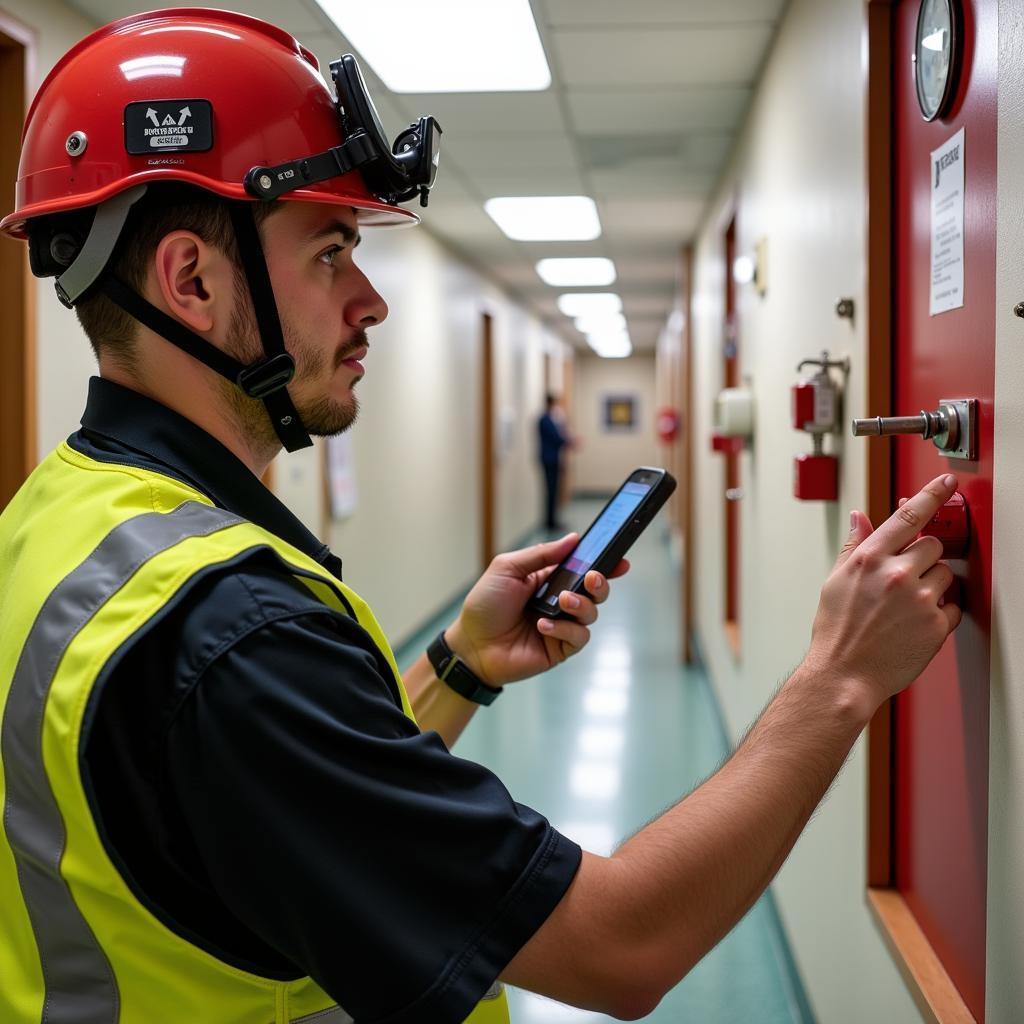The field of emergency management is critical in ensuring hospitals can effectively respond to crises and maintain a safe environment for patients, staff, and visitors. “Emergency Management Hospital Jobs” encompass a wide range of roles, each with specific responsibilities focused on preparing for, mitigating, responding to, and recovering from a variety of emergencies.
What Does Hospital Emergency Management Entail?
Hospital emergency management is a multifaceted discipline that involves a proactive and comprehensive approach to handling a wide array of potential emergencies. These can include:
- Natural disasters: Earthquakes, floods, hurricanes, wildfires.
- Pandemics: Outbreaks of infectious diseases.
- Mass casualty incidents: Large-scale accidents or acts of violence.
- Internal emergencies: Fires, power outages, hazardous material spills.
 Hospital Emergency Management Team
Hospital Emergency Management Team
Effective emergency management in hospitals aims to:
- Save lives: Implementing procedures to minimize casualties and injuries.
- Reduce suffering: Providing timely and appropriate medical care and support to those affected.
- Protect property: Safeguarding hospital infrastructure and resources.
- Ensure continuity of operations: Maintaining essential hospital functions during and after emergencies.
Navigating the Landscape of Emergency Management Hospital Jobs
A variety of professionals contribute to the success of a hospital’s emergency management program. Let’s delve into some of the key roles:
1. Hospital Emergency Management Director
Responsibilities:
- Develops and implements the hospital’s emergency management plan.
- Conducts risk assessments and vulnerability analyses.
- Designs and oversees emergency preparedness drills and training programs.
- Coordinates with external agencies, such as local government and emergency medical services.
Qualifications:
- Master’s degree in public health, emergency management, or a related field.
- Extensive experience in healthcare emergency management.
- Strong leadership, communication, and problem-solving skills.
2. Emergency Management Coordinator
Responsibilities:
- Assists the Emergency Management Director in implementing the emergency plan.
- Maintains emergency preparedness resources and equipment.
- Develops and delivers training programs for staff on emergency procedures.
- Coordinates communication and logistics during emergencies.
Qualifications:
- Bachelor’s degree in healthcare administration, emergency management, or a related field.
- Experience in a healthcare setting is highly desirable.
- Excellent organizational, communication, and interpersonal skills.
3. Safety Officer
Responsibilities:
- Identifies and assesses potential safety hazards within the hospital environment.
- Develops and implements safety policies and procedures.
- Conducts safety inspections and investigations.
- Provides training to staff on safety protocols.
Qualifications:
- Bachelor’s degree in occupational safety and health or a related field.
- Knowledge of relevant safety regulations and standards.
- Strong analytical, problem-solving, and communication skills.
 Safety Officer Conducting Inspection
Safety Officer Conducting Inspection
4. Emergency Preparedness Specialist
Responsibilities:
- Focuses on specific aspects of emergency preparedness, such as hazardous materials management, pandemic planning, or security.
- Develops specialized training programs and materials.
- Conducts research and analysis to stay abreast of best practices and emerging threats.
Qualifications:
- Bachelor’s or Master’s degree in a relevant field, such as public health, environmental health, or security management.
- Specialized knowledge and experience in the designated area of expertise.
- Strong research, analytical, and communication skills.
5. Other Essential Roles
Beyond these dedicated emergency management positions, numerous other hospital staff members play vital roles in emergencies:
- Physicians and Nurses: Provide direct patient care during emergencies.
- Pharmacists: Manage medication distribution and ensure adequate supplies.
- Laboratory Technicians: Perform critical diagnostic testing.
- Security Personnel: Maintain order and security within the hospital.
- Environmental Services Staff: Ensure a clean and safe environment.
The Importance of Teamwork and Communication
Effective emergency management relies heavily on seamless teamwork and clear communication. All hospital staff must be well-versed in their roles and responsibilities during emergencies. Regular drills and training exercises are crucial for practicing procedures and fostering coordination among different departments.
Finding Your Place in Emergency Management Hospital Jobs
If you are drawn to a career that is both challenging and rewarding, emergency management in a hospital setting might be the perfect fit for you. These roles offer the opportunity to make a tangible difference in the lives of patients and contribute to the resilience of the healthcare system.
To explore available positions in your area, consider searching online job boards like Indeed and LinkedIn, using keywords such as “hospital emergency management jobs.” You can also check the career pages of hospitals and healthcare organizations directly.
hospital emergency management jobs
Conclusion
The work of emergency management professionals in hospitals is indispensable in safeguarding the well-being of patients, staff, and the community. By ensuring preparedness, effective response, and timely recovery, these dedicated individuals play a vital role in creating a safer and more resilient healthcare environment.